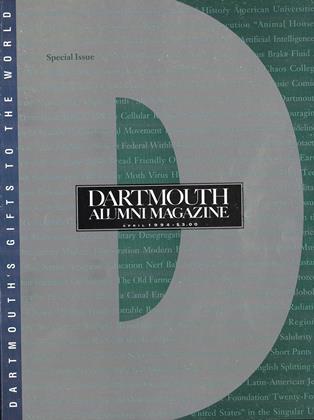Reginald Colley '09 invented an entomological time bomb that may help keep forests from being devastated by the dreaded gypsy moth. The bomb went off nearly 80 years after Colley released it.
After graduating from Dartmouth, Colley went to Harvard to get a master's degree in biology. He teamed up with plant pathologist Arthur Speare in an attempt to find a natural weapon against the moth, which attacks the leaves of deciduous trees and can defoliate millions of forest acres.
The two men cultivated a disease imported from Japan and released a few infected moth larvae in six Boston suburbs.
The experiment was forgotten until June 1989, when entomologists across the Northeast isolated a fungus that was killing off gypsy moths in unprecedented numbers.
Scientists had predicted an especially destructive season, but the disease held moth populations far below the disastrous levels of previous outbreaks. The fungus, Entomophaga maimaigu, was traced back to an obscure paper published by Colley and Speare; the disease apparently had been quietly spreading throughout the Northeast over the previous eight decades.
Sadly, the discovery-came too late for Colley to see it. He had died four months earlier, at the age of 101.
 View Full Issue
View Full Issue
More From This Issue
-
 Cover Story
Cover StoryROSTER OF DARTMOUTH'S GIFTS TO THE WORLD
April 1994 -
 Article
ArticleThe Greatest Books by Dartmouth Authors
April 1994 -
 Class Notes
Class Notes1993
April 1994 By Christopher K. Onken, -
 Class Notes
Class Notes1981
April 1994 By Karen McKeel Calby, -
 Class Notes
Class Notes1989
April 1994 By Dan Parish, -
 Class Notes
Class Notes1983
April 1994 By Deborah Michel Rosch.







